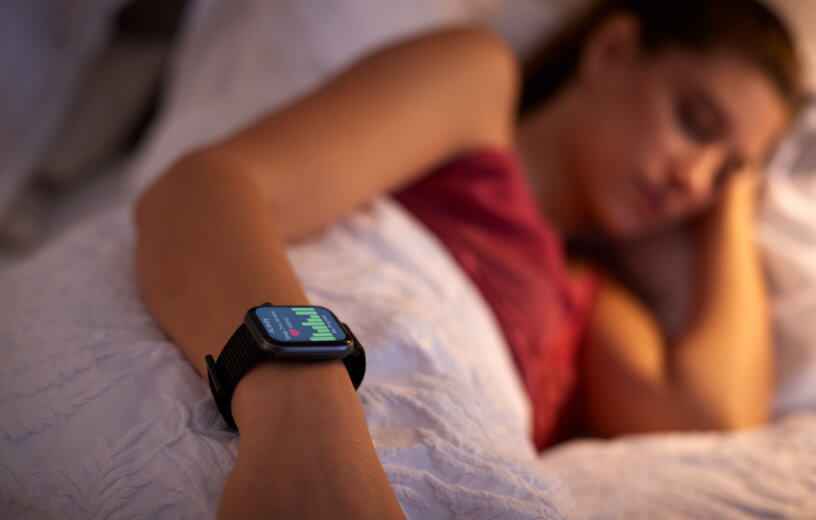NEW YORK — Falling asleep can be an elusive task. We’ve all had our fair share of evenings spent tossing and turning, and everyone has their own go-to for a better night’s sleep. Some like to read before bed, while others drink some tea. Now, a new survey of 2,000 Americans finds that well over half (60%) rely on some form of technology for a comfortable and better informed snooze.
In all, 57% say that technology has indeed helped them sleep more efficiently. Examples cited by respondents included using their phone as a bedtime reminder, apps that limit screen time, and a watch that measures biometrics.
Additionally, 66% say they would actually like to use technology more to improve their sleep routine.
The research, commissioned by Eight Sleep, also found that many Americans could certainly use the help. The average respondent only sleeps five hours and seven minutes each night. Moreover, 48% admit that they typically have a very irregular sleep schedule, with the average person experiencing three nights each week of “disrupted sleep.”
The hardest part about sleep is actually getting there, as illustrated by the 61% who say falling asleep is their biggest nightly issue. Another 52% have trouble staying asleep, with many saying temperatures often disturb their slumber (49% wake up feeling hot, while 52% wake up shivering).
“The human body has an internal thermostat, so when you are ready to sleep your brain begins to lower your body temperature, and that mild drop in body temperature induces sleep,” says H. Craig Heller, PhD, professor of biology at Stanford University, in a statement. “The most impressive new technologies will utilize contactless, nonwearable biometrics tracking and react to thermal environment using in-home data to improve sleep.”
In total, 39% believe that technology can help them fall asleep more easily, and another 39% believe technology can help them stay asleep. Meanwhile, 37% believe technology can help them get to bed earlier.
As far as fixing those temperature problems, 77% would like to be able to change the temperature in their bed, and 90% are interested in purchasing a device that would allow that.
“The results reinforce what we’re already seeing — people want more technology, data, and thermoregulation when it comes to sleep,” says Matteo Franceschetti, Co-Founder and CEO of Eight Sleep.
Besides just sleep improvements, many respondents also want more data on their sleep habits; 87% believe having access to sleep data would help them sleep better, and 89% would like a device that helps them better understand that data.
So, what types of data would Americans like to see? The most common answers were data on heart rate through the night (43%) and deep sleep percentage (43%), followed by respiration rate (42%), sleep stages tracking (41%), and REM sleep percentage (40%).
In fact, 59% have already tried out a type of sleep technology that tracks their biometrics.
Broken down by generations, 73% of surveyed gen-z respondents would like to use sleep technology, as well as 70% of millennials, 70% of gen-x, and 39% of baby boomers.
All in all, the sleep tech industry in the U.S. may mean big business in the future, as 63% believe such devices can seriously fix the nation’s sleep problems.
The survey was conducted by OnePoll.
